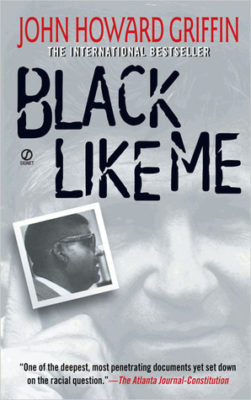Book 5: Black Like Me
August 24, 6-8 p.m.

For Discussion:
1. Griffin became an international celebrity after publication of his article in Sepia magazine and later his book, Black Like Me. However, he also faced open hostility throughout the American South, including being burned in effigy in his hometown. What might today's reaction be if the book had just been published?
2. What motivates Griffin to change the color of his skin and take on the identify of a black man?
3. Talk about his reaction as Griffin looks in the mirror and first sees a black man peering back at him. He feels he has lost his identity. How would you feel if you changed the color of your skin? How does skin color affect identity? Is skin color a more powerful determinant than gender?
4. What do you consider as the most difficult experience that Griffin faced as a black man? What angered or depressed him—or you—the most?
5. How did you respond to the white men's attitude toward African-American sexuality? How does that stance dehumanize black men and women? And what does it say about white men who are so obsessed by the idea of black sexuality?
6. Griffin spends a day with his acquaintance P.D. East, and the two discuss racism and the law in the South. Talk about the ways in which prejudice was incorporated into the South's legal code.
7. How does the treatment Griffin receives at the hands of white people affect him? What does he notice about himself after a couple of weeks? Do you think his experience of racism was harder for Griffin because he was white...or easier because he was white?
8. Talk about Griffin's time in Montgomery, Alabama, and the young Martin Luther King, Jr., back then a still unknown figure outside the South.
9. What were some of the other positive things Griffin experienced? What about those who rose above the cruelty of hatred and intolerance? In what way did they offer hope?
10. The book was published in 1959. How far has the nation come in the past 50 years. Beyond the most obvious fact that the country elected an African-American president, to what extent—and how—does racism continue to show itself? What racial injustices, faced by Griffin in 1959, still exist today?
11. What would Griffin would experience if he were to attempt his project today?
12. Even with his darkened skin, John Howard Griffin was still a white man. Was it possible for him to truly experience life as a black man? Is his book well-meaning but arrogant in its attempt to speak of another race's experiences? Or do you think Black Like me offers a critical perspective because it is the closest that any white person could ever come to experiencing—and thus understanding—racial intolerance?


